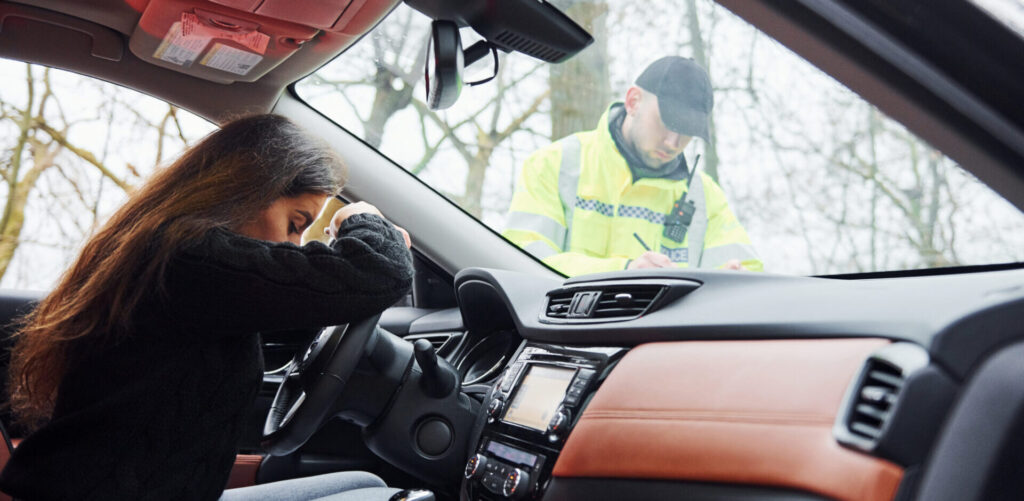Why We Think You Should Never Take a Breathalyzer Test
We’ve done a number of videos about drunk driving. What you should do and what you shouldn’t do if you’ve been arrested for drunk driving. In particular, we’ve talked a lot about the breathalyzer test. It’s always been our opinion that you should refuse to take a breathalyzer test. The reason for this is twofold. First, it provides the prosecution with very powerful piece of scientific evidence that they can use against you at trial. Second, it’s our belief that the science behind the machine, as well as the manner in which they’ve been maintained and calibrated by the state’s Office of Alcohol Testing is flawed. So what you’re doing is giving the prosecution this powerful piece of scientific evidence, that’s flawed. For those reasons, it is still our opinion that you should always refuse to take the breathalyzer test. This will be better for the defense of your drunk driving case. That said, we want you to understand what will also occur if and when you do refuse to take the breathalyzer test.
What Happens When I Refuse The Breathalyzer Test?
I recently had a client ask the question, “Hey, Mike isn’t it true if I do as you’re saying and refuse to take a breathalyzer test, I’m going to lose my license for a certain period of time?” Unfortunately, the answer to that question is “yes.” That’s because of something called the “Implied Consent” law. Under that law, just by driving on the roads of Massachusetts, you’ve consented to take a breath test like a breathalyzer or a blood test, if you’re arrested for drunk driving. The purpose of this law was to convince people to take that breathalyzer test and provide evidence against themselves at a trial for a drunk driving case.
Stiff Penalties for Refusing
In order to do so they made the penalties pretty stiff for refusing a breathalyzer. For instance, for a first-time offender, who’s over the age of 21, if you’ve been arrested for drunk driving and you refuse to take the breathalyzer test, you’re going to lose your license for 180 days (almost six months). If you’ve had more than one offense or if you’re a juvenile, the penalties are just that much stiffer just for refusing the breathalyzer test. See below for list of offenses with particular loss of license period:
| Offense (Includes Similar Out of State Offenses) | Loss of License |
| First Offense (Over Age 21) | 180 Days |
| First Offense (Under Age 21) | 3 Years |
| Second Offense | 3 Years |
| Third Offense | 5 Years |
| More Than Three Offenses | Lifetime |
| Previous Conviction for OUI Causing Serious Bodily Injury | 10 years |
| Previous Conviction for OUI Motor Vehicle Homicide | Lifetime |
Like many people, you probably need your license to get to and from work, to get your kids places, etc. The penalties for refusing the test provide a pretty big encouragement / convincer to get you to take the breathalyzer test.
Punished Before You’ve Been Found Guilty
You should also understand that the Implied Consent law has nothing to do with guilt or innocence for drunk driving. This isn’t the judge making the decision. No one’s decided that you actually were driving drunk. The license suspension is just because you were arrested and said, “I’m not going to take this test.” It’s hard for most people to understand as it’s a significant punishment before you’ve been found guilty of committing any crime.
What Happens If I Decide to Take the Test?
If you do take the test and fail (blow above a 0.08 or above for a person over 21 or a 0.02 for a person under 21), they’re still going to take your license, but it’s for a much shorter period of time. Using that same example as above, a person over the age of 21, who takes a breathalyzer test and blows at least a 0.08, they’re only going to lose their license for 30 days or until the case is over. A person who is between the ages of 18 -21 who blows over a 0.02 will lose their license for 180 days, unless they enter a particular first-time offenders program. A person who is under age 18 will lose their license for 1 year.
Simply put, the Implied Consent law makes give you a pretty big incentive to take that test and provide that evidence against yourself. That is exactly what was intended when they enacted this law. Now, we still think is a bad idea, to take the breathalyzer test. It can cause significant damage to your criminal drunk driving case. However, we also wanted to make sure that people have all the information available to them when making that decision.
If you have any questions, please feel free to give me a call or shoot me an email. I’ll be happy to speak to you about it.





